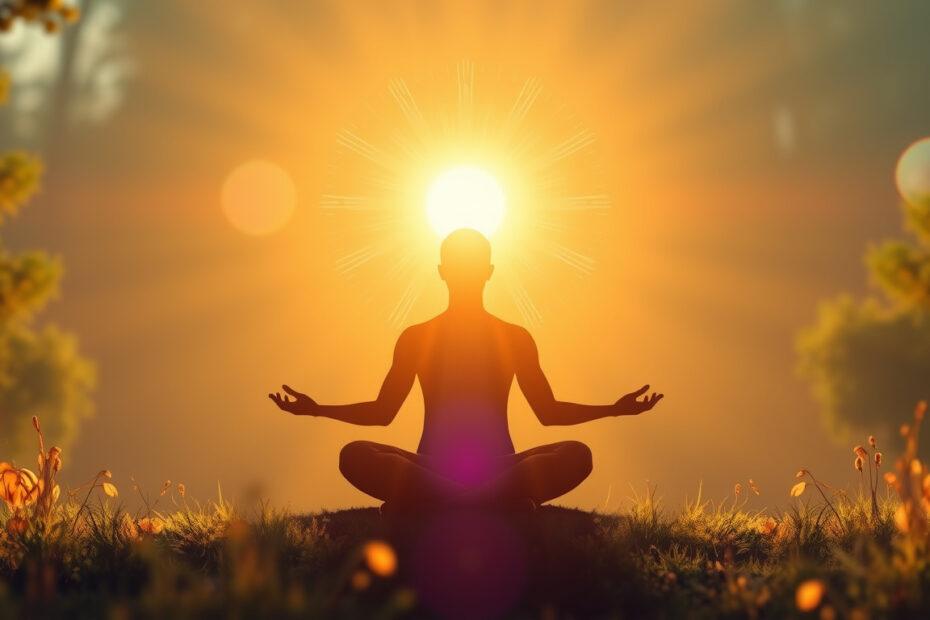🌟 Daily Awakening Quiz 🌟
In today’s fast-paced world, many people seek deeper meaning and fulfillment beyond their daily routines. Spirituality has become a cornerstone for those aiming to unlock inner peace and cultivate personal growth. By exploring spirituality, individuals can connect with their true selves, find balance, and develop strategies that promote well-being and resilience. In this article, we dive into what spirituality truly means, how it can enhance your life, and practical ways to incorporate spiritual practices for lasting personal growth.
Understanding Spirituality: More Than Just Belief
Spirituality is often mistaken for religion, but the two are not synonymous. While religion typically involves organized systems of beliefs and rituals, spirituality is a broader concept focused on personal connection to something greater than oneself. This could be a sense of unity with nature, the universe, or a higher power. Spirituality centers on exploring meaning, purpose, and inner awareness.
At its core, spirituality encourages:
- A quest for inner peace
- Awareness of how we relate to ourselves and others
- A desire for personal and moral development
Recognizing this difference is vital when exploring spirituality as a tool for personal growth rather than just adherence to religious doctrine.
The Benefits of Embracing Spirituality
Research has shown that spirituality can significantly contribute to emotional and mental health. According to a study published by the National Institutes of Health, spiritual practices can reduce stress, increase feelings of well-being, and improve coping mechanisms during challenging times (source). By unlocking inner peace through spirituality, individuals often experience the following benefits:
- Enhanced Emotional Resilience: Spirituality can foster a positive mindset and provide tools to manage anxiety and depression.
- Improved Relationships: A spiritual outlook encourages empathy, compassion, and forgiveness, leading to healthier interpersonal connections.
- Greater Sense of Purpose: Feeling aligned with a higher purpose helps individuals stay motivated and focused during life’s ups and downs.
- Heightened Self-Awareness: Spiritual practices invite introspection, increasing awareness of personal thoughts, behaviors, and values.
Practical Spirituality: Strategies to Unlock Inner Peace and Promote Personal Growth
Adopting spirituality into your life doesn’t require drastic changes — small, consistent practices can yield profound results. Here are some accessible strategies to help you cultivate spirituality on a daily basis:
1. Mindfulness Meditation
Mindfulness meditation is a cornerstone of many spiritual traditions. It involves focusing your attention on the present moment, observing your thoughts and feelings without judgment. This practice helps reduce mental clutter and promotes inner calm.
How to start:
- Find a quiet space.
- Sit comfortably and focus on your breath.
- When your mind wanders, gently bring your attention back.
- Practice for 5-20 minutes daily.
2. Journaling for Self-Reflection
Writing your thoughts, emotions, and spiritual experiences can deepen your self-awareness. Journaling helps overcome mental blocks and clarifies your values and goals.
Try journaling prompts like:
- What am I grateful for today?
- What challenges do I face, and how can spirituality help me overcome them?
- What lessons have I learned about myself recently?
3. Engaging in Nature
Nature can be an incredibly powerful spiritual ally. Spending time outdoors enhances your connection to the present and fosters appreciation for the world’s beauty and vastness.

Ideas include:
- Taking mindful walks in parks or forests.
- Practicing grounding techniques like walking barefoot on grass.
- Observing natural phenomena like sunsets or water flow.
4. Reading Spiritual Literature or Inspirational Texts
Delving into spiritual books, poetry, or teachings exposes you to diverse perspectives and wisdom. It can inspire and guide your personal growth journey.
5. Practicing Compassion and Service
Helping others not only benefits those in need but also nurtures your spiritual growth. Acts of kindness build empathy and a sense of interconnectedness.
Cultivating a Personalized Spiritual Practice
Spirituality is deeply personal. What works for one individual might not resonate with another. Therefore, it’s crucial to explore diverse approaches and tailor your spiritual practices to fit your personality, beliefs, and lifestyle. Experiment with different techniques and reflect on how each makes you feel.
5 Steps to Begin Your Spiritual Exploration Today
If you’re new to spirituality, start simple and gradually build your practice:
- Set an intention: Define why you want to explore spirituality.
- Schedule time: Dedicate 10–15 minutes daily to a spiritual activity.
- Keep an open mind: Stay curious and nonjudgmental about what you discover.
- Notice changes: Pay attention to shifts in your mood, thoughts, and relationships.
- Seek community: Join groups or forums of like-minded individuals for support.
Frequently Asked Questions (FAQs) About Spirituality
Q1: What is the key difference between spirituality and religion?
A1: Spirituality is a personal journey of seeking meaning and connection beyond oneself, whereas religion typically involves structured beliefs and organized practices.
Q2: How can spirituality help with mental health?
A2: Spirituality often provides coping strategies such as mindfulness, meditation, and fostering hope, which can reduce stress and enhance emotional resilience.
Q3: Can anyone practice spirituality regardless of religious beliefs?
A3: Absolutely. Spirituality is inclusive and personal; it can be practiced by anyone, regardless of their religious affiliation or lack thereof.
Conclusion: Start Unlocking Your Inner Peace Today
Exploring spirituality isn’t about perfection or quick fixes. It is a continuous journey of self-discovery, inner peace, and personal growth. Incorporating spiritual practices into your daily life can help you navigate challenges with grace, deepen your relationships, and uncover a sense of meaningful purpose. Whether through meditation, nature, or compassionate action, spirituality offers tools that are accessible and transformative.
Take the first step on your spiritual journey today by choosing one strategy from this article and committing to it. Remember, unlocking inner peace and achieving personal growth is within your reach — and it all begins with the power of spirituality. Start exploring and experience the profound benefits for yourself.
